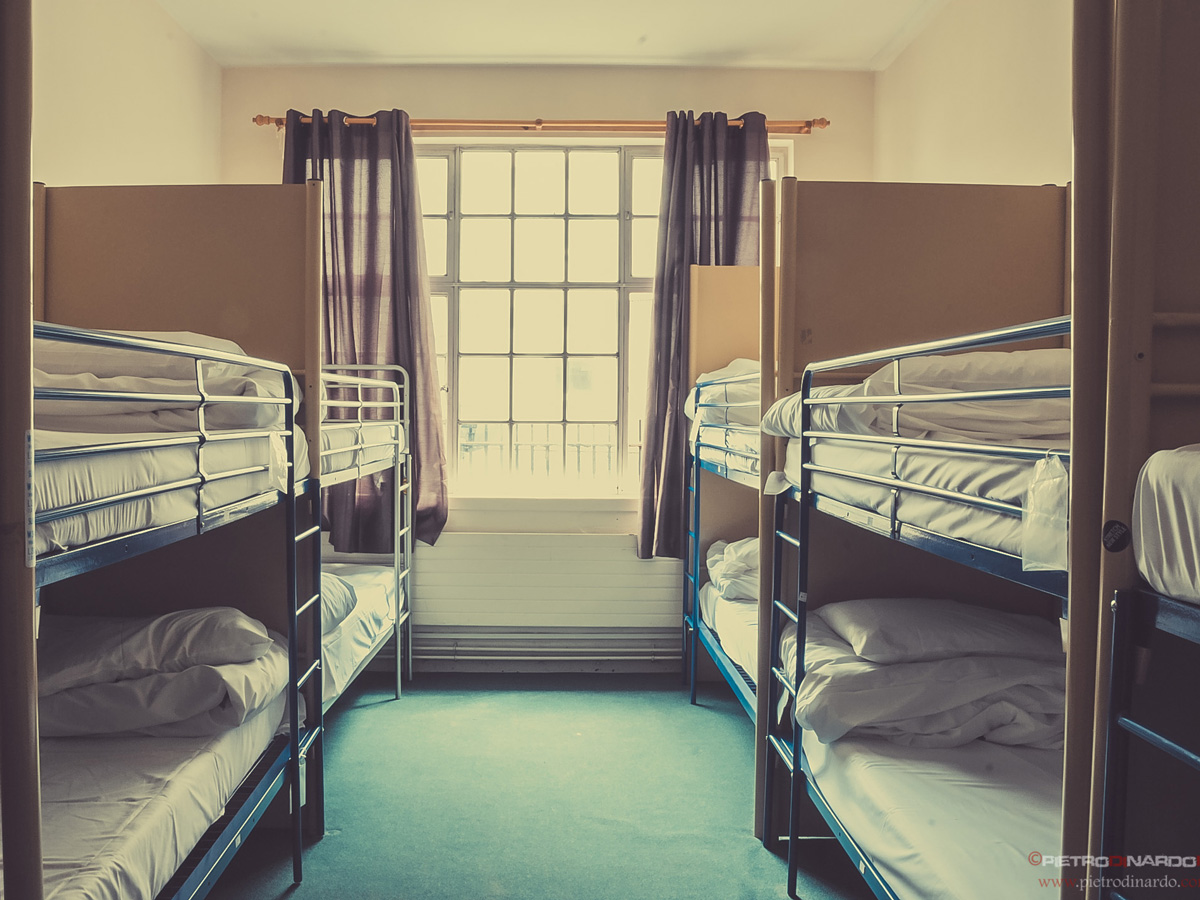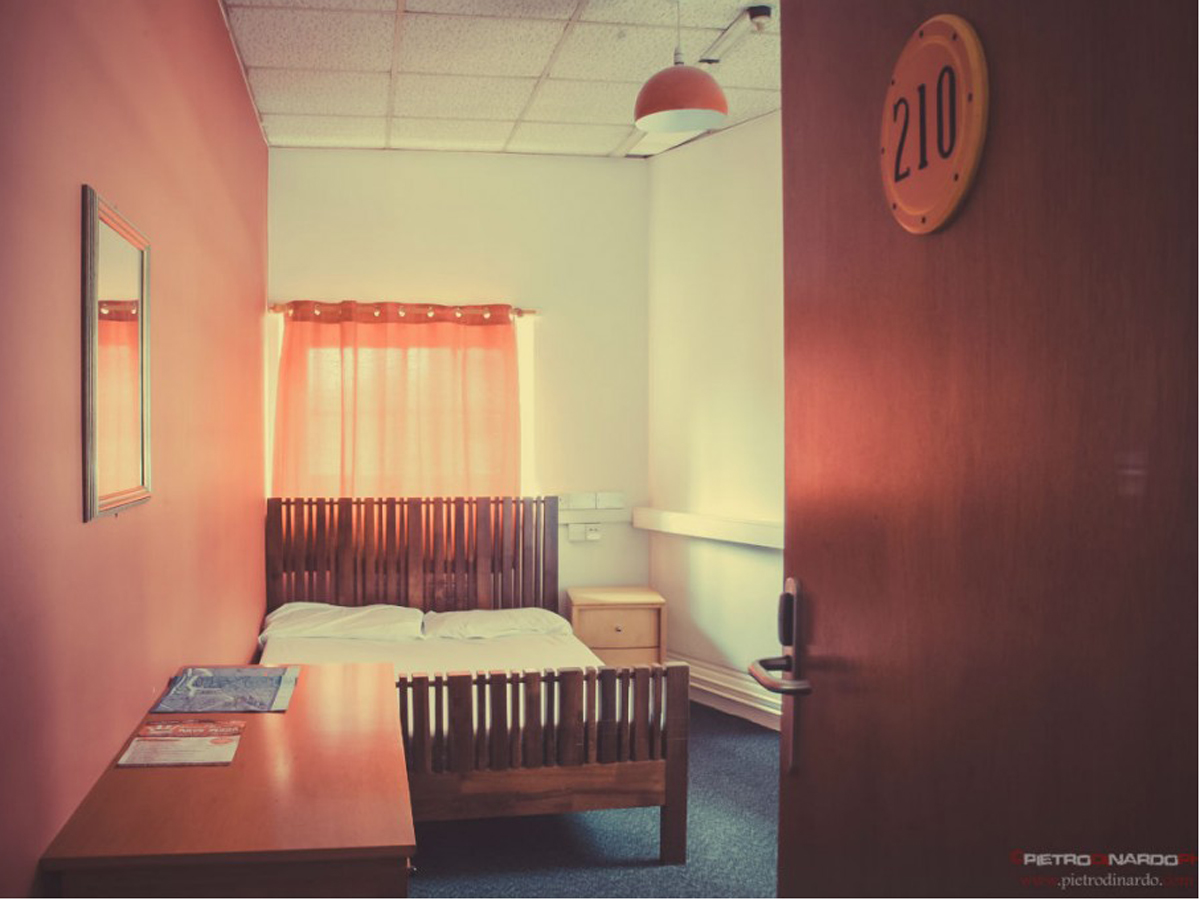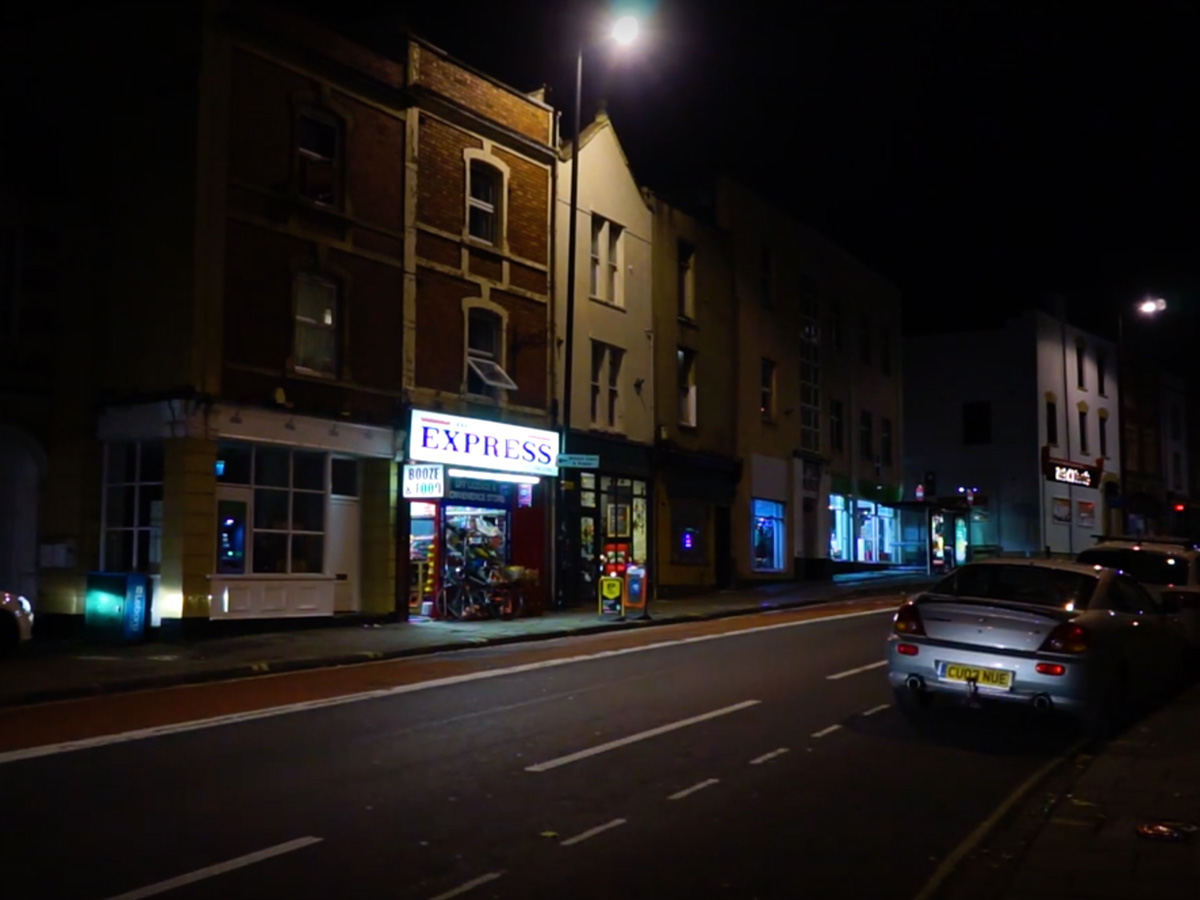Hostels: Stepping Stones Or Alternative Homes?
In this sobering essay, Rafel meets residents of the Bristol hostels he has called home, to talk about housing, hope and hostel-living.
A year ago, I moved to Bristol and spent five months in a hostel that ended up being my first home in England. The reason? Not being able to afford rental accommodation. Early this year, I decided to experience life in a hostel again, but this time the circumstances were going to be different. For the vast majority of people, a hostel conjures up an image of a cheap place to stay for a very short time, but for some it is their home. If a home is where we long to return to, where we feel connected to our family and have roots, how can a place made for travellers be a home? Finding the answer to this paradox in some people’s lives impelled me to stay in different hostels in Bristol for two weeks. I wanted to get to know some of the residents who live in them on a permanent basis and find out the circumstances that brought them there. This is my story.
15th-21st January 2017
…due to economic problems they had to move to the South where they had expected to find better jobs.
My first destination is the Rock & Bowl in the centre of town. It’s a classic place for longstanding residents. For the next seven days I am staying in a dormitory with another seventeen people. Am I ready? Not a bit. When I enter the dorm, I immediately look for the lockers. I can’t see any. A few minutes later, someone comes in. I ask her where I can keep my things and she points under my bed to where a strange metallic locker without padlock is lying. Susana, my new roommate, gives me the lowdown on the hostel: where the facilities are, the types of people staying there, etc. ‘Try to always carry valuable things like your laptop with you; you never know what can happen,’ she advises me. After speaking to her in English for a little while I realise that she is not as native as I had thought.
But after five years living in England, her Spanish accent has almost disappeared. When I discover she’s Spanish, we switch to our mother tongue. She tells me that she used to live with her partner in the North of England, where they had a house, but due to economic problems they had to move to the South where they had expected to find better jobs. Since then, they have been living at the Rock & Bowl. ‘After five years of having our own space, a car and a job, it’s really tough having to live in a hostel,’ she says. This is their second month there and they are determined to leave as soon as they have enough money to pay a diposit for a little studio, around £1-2,000.
For Darius, a Lithuanian guy into his fifth month at the Rock & Bowl, this is also a transitory period in his life. A recent graduate in Engineering, he is currently working as a barista in a coffee shop. ‘Living in a hostel is not easy. You have no alternative but to get used to the lack of comfort everywhere: people shouting, having to sleep with the light on all night long… If I had to describe life in a hostel with one word, I would choose challenging,’ he says. When I tell him that my room is number 105, he looks at me very seriously and recommends changing it as soon as possible if I want to get a good night’s sleep. ‘In a hostel where everybody lives on a permanent basis there are rules that people respect, but in room 105 nobody cares,’ he tells me.
Darius was right, the room is hell.
Darius was right, the room is hell. People speak loudly until late, the light is always on, there is a bad smell and a lack of fresh air. The window is tiny and breathing is almost impossible. Life in a hostel is challenging, but there are certain things that go beyond the limit to what is bearable.
Vanessa, a French girl who has been living in the hostel for eight months, is also staying in room 105. While smoking a cigarette, she complains about our roommates. She tells me that the situation was much better previously. Everything changed when a group of Brazilian backpackers arrived. Since then, sleep had become more of a struggle. I can notice drooping bags under her eyes. She obviously hasn’t slept well for a while. Despite the problems that her roommates cause her, she feels happy living in the Rock & Bowl. Nothing wipes the smile off her face. ‘Here there is a community that supports me. Without the people I’ve met in this hostel I wouldn’t have been able to survive in England. For example, when I arrived I could barely speak a word in English and staying here helped me to achieve fluency. I’m like a sponge, I absorb every positive thing from everybody around me,’ she says.
According to Maria, the manager of the hostel, long-term residents constitute a third of all guests. She tells me that Juan, a Spanish man of about fifty, has been living in the hostel the longest -about two or three years, she says. Maria doesn’t think that for people like Juan this place is their home. Despite the fact he lives there on a permanent basis, she thinks it is still only temporary accommodation.
[rife-guide-events]
This is not true for Naveed, an Indian guy in his mid-twenties. After one year living in the hostel, he considers the Rock & Bowl his home. ‘I arrived in Bristol a year and a half ago and booked in this hostel for a week. I found accommodation after two months here. I thought that I would stay there, but I couldn’t beare it. I felt lonely, as I didn’t have anybody to speak to or to hang out with. So I decided to return to the hostel. Back in the Rock & Bowl I felt relieved. Here is where my friends and my new family, the staff of the hostel, are,’ he says. According to him, the hostel is a co-living space where you have the opportunity to come into contact with other people’s experiences and ideas. ‘You live in permanent contact with other people and sometimes the inevitable happens: love. I myself met my girlfriend here. I couldn’t ask more from life than that,’ he tells me.
22nd-28th January 2017
This hostel has always been a place for long-term guests.
007 Hostel is my last stop and the place where this journey started for me. Located in Bedminster, 007 is where I lived for five months last year. A little bit nervous I step inside. Peter, the boss, is in the reception. He seems not to recognize me, but after a few seconds of staring at me he finally does.
‘How is everything going?’ I ask him.
‘Well, you can have a look around,’ he says.
The living room, which used to be packed, now is empty. It feels strange. By just looking at the few people I come across, I can tell that they are not backpackers. This hostel has always been a place for long-term guests. Among them, I recognize Marc. During my five month stay, I never spoke to him. He was always alone, standing back from the rest. He is really reserved and I am afraid that it won’t be possible to speak to him. Marc’s serious expression scares me. After hesitating for a little while, I decide to say something to him. He answers my ‘Hi, which room are you staying in?’ with a penetrating look that seems to warn me against trying to speak to him. However, he ends up talking to me and our conversation moves forward. He tells me that he came to 007 when he broke up with his girlfriend. He didn’t know what to do and where to go, so he decided to move here and try to figure out what his next step should be. Two years have passed since then and he is still here. ‘For me, this place is like my refuge, where I can relax after a long day working. Not to be disturbed is all I ask,’ he says.
In 2015, I spent Christmas in this hostel. I had Christmas dinner here along with twenty other people, mainly Poles but also a man called George. George has been living in 007 for the longest of all the residents here. Although he is 60, he is young in spirit. He has spent half of his life travelling around Europe and has never had a house, but has always stayed in ‘temporary bases,’ as he likes to call them. ‘Permanence’ and ‘security’ are not concepts that he is familiar with, he admits. Despite dwelling on each question I ask him, he seems to avoid talking about his past and explaining the reasons why he ended up here. All he tells me about is his life in the hostel. ‘When I arrived in 007 there was a strong sense of community among the residents. It didn’t matter what your cultural or social background was or how old you were, everybody was part of the same group,’ he says. However, there is another aspect of hostel living that he is well acquainted with. ‘There is no balance between privacy and social life in a hostel and you don’t have any other alternative but to get used to it,’ he admits. ‘It could be worse, I could be sleeping on the streets. At least, I have a roof over my head and a job,’ he says. After all this time, George has got a job as a receptionist in the hostel.
This last Christmas he was in the hostel again. ‘Like sand in an hourglass, time sneaks through one’s life,’ he points out. Despite living in 007 for almost three years, he doesn’t consider this hostel to be his home. For him, it is a stepping stone on the way to somewhere else. ‘At the beginning, it was a temporary stopgap, a place where to rethink some aspects of my life, but it turned out to be a long-term stop and, I’m afraid, I’m not ready to leave yet,’ George tells me, but again without explaining the reasons why not.
‘If you weren’t here, where would you like to be instead? Any place that you consider home?,’ I ask him.
‘I don’t feel that I belong to anywhere. I suppose that the combination of a place and people you care about is what constitutes a home. I’ve got friends who are like family for me. They are the most solid thing in my life. The problem lies in the place. Anyone who’s got both things is a very lucky person,’ he says.
We are standing in front of the table that acts as reception. I look at him while he thinks about his life and tries to find an explanation to his current situation. He stares down at the table, while holding his prominent forehead with his hand. When trying to define what this hostel means to him, he comes up again with the same expressions: a base, a stepping stone, a stopgap, a refuge… ‘I suppose that this is what suits a nomadic person like me best. Nowhere is a good place to settle for someone with no home’.
What are your thoughts on Bristol’s housing issues? Let us know on Facebook and Twitter
In housing need? As well as 1625ip you can check out Bristol Night Stop and The Julian Trust

About Rife







